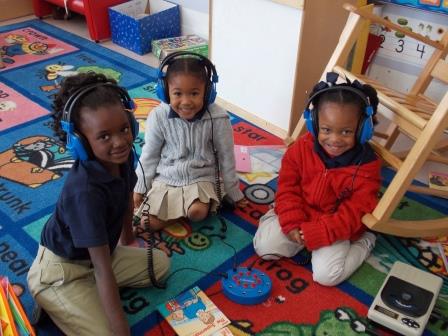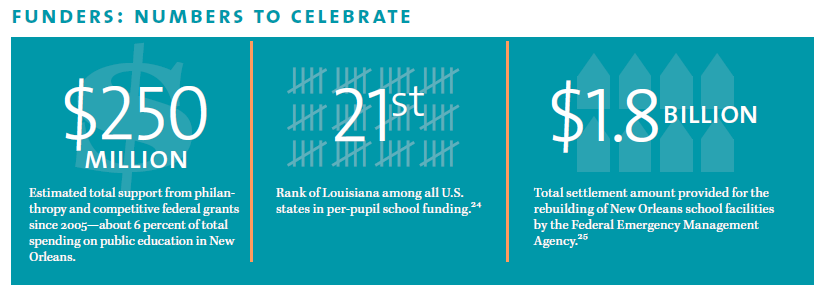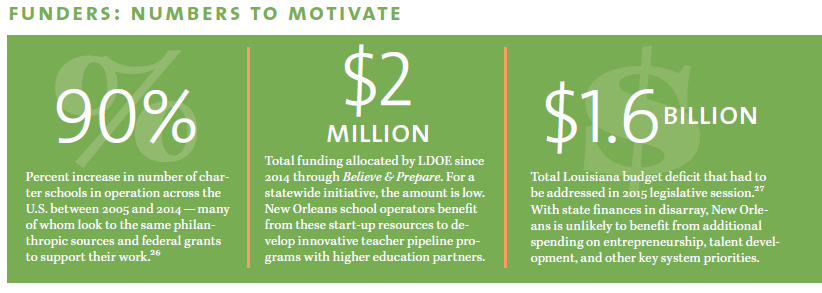In August of this year, NSNO released our report Ten Years in New Orleans: Public School Resurgence and the Path Ahead. Over the next few weeks, we’ll be highlighting some of our key findings.
Unlike most traditional school systems, New Orleans allocates the vast majority of public education dollars directly to schools. This structure helps to ensure that schools have autonomy and flexibility to meet their students’ academic needs.
Private philanthropy and several major federal grants have supplemented core public funding for the past decade. New Orleans benefited greatly from these additional resources. Our decentralized system relies on nonprofits to run schools, develop educators, and support parents in the school choice process. Supplementary funding helped to spark the innovation and entrepreneurial energy that fuels these efforts and characterizes public education in New Orleans today.
In other words, governance reform created the conditions for school success. Nonprofits then worked within the new decentralized framework, using supplementary funding, to create a vibrant system focused on providing all New Orleans families with excellent schools.
If our system depends so heavily on entrepreneurial nonprofits and regular infusions of talented leaders and educators, is it wise to rely on philanthropy and unpredictable grant funding to support them? In the long run, no. Core public funding for education must evolve to meet new priorities in decentralized systems, particularly school start-up and ongoing talent development work. Until public funds adequately support this work, New Orleans must continue to turn to its funding partners to fuel the city’s academic transformation.


